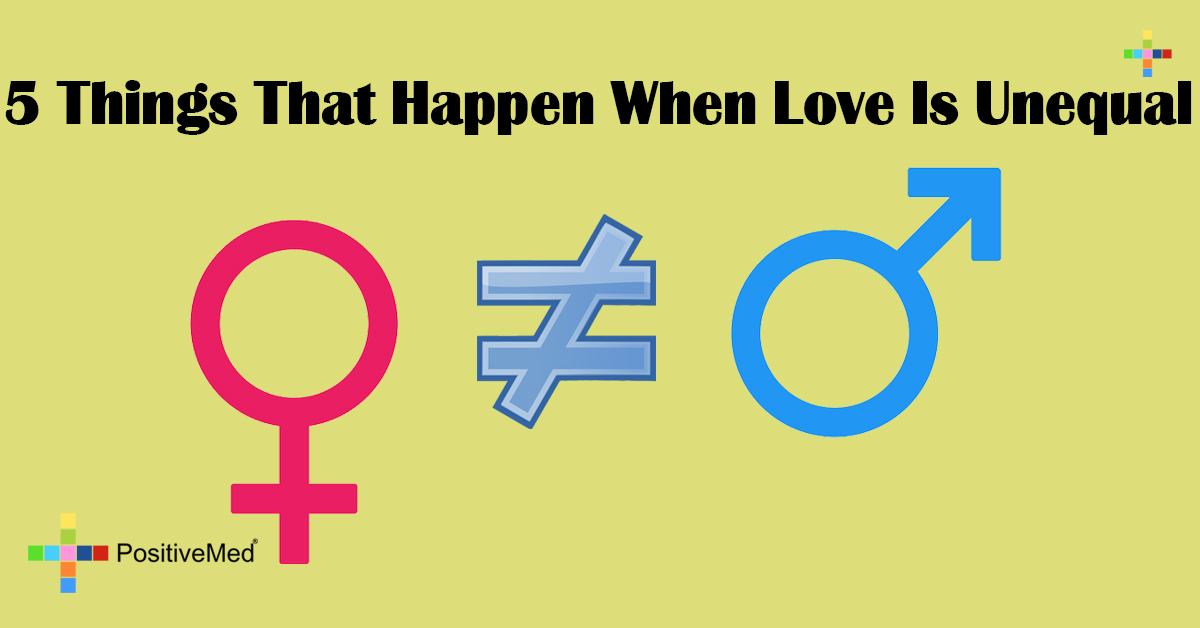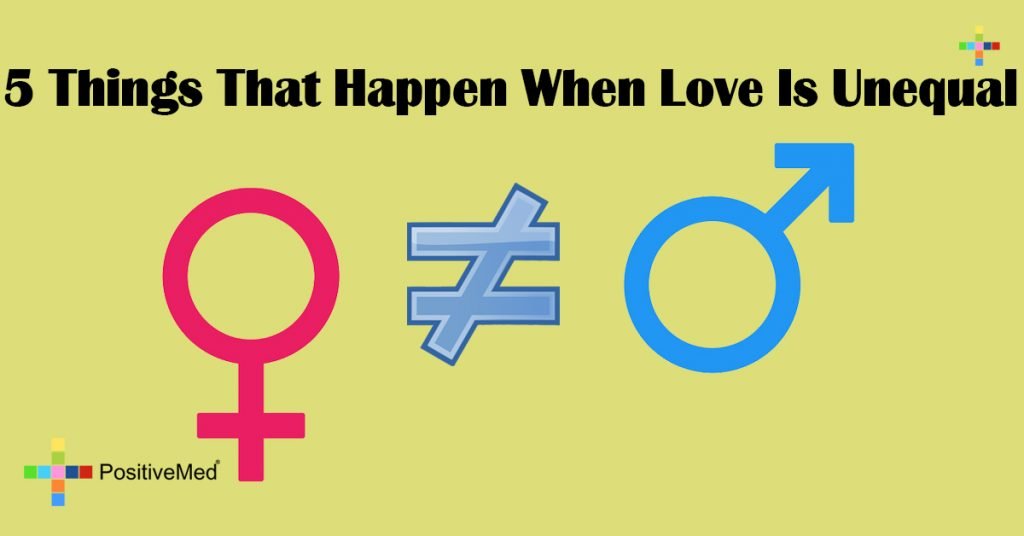
5 Things That Happen When Love Is Unequal
[nextpage title=”…”]
Relationships are inherently unequal because no two people are the same. However, the degree of the inequality determines both the quality and the longevity of the relationship. Inequality is different than strengths and weaknesses; inequality denotes superiority and inferiority whereas many relationships thrive when strengths and weaknesses balance out.
Relationship inequality occurs when there is an emotional inequality, in other words, one partner is more emotionally invested in the relationship than the other. Several things happen when there is inequality in a relationship. Five of these are:
1. Lack of Fulfillment
This is true for both sides. The one who perceives himself or herself to be superior will feel unfulfilled because of the perception that he or she is more intelligent, more outgoing, more capable, and so forth, and, therefore, should not be paired with an inferior being.
The partner who is perceived to be inferior will remain unfulfilled because he or she is denigrated and maligned and probably suffers from a lack of self-esteem. More than likely, the partner who perceives himself or herself to be superior also suffers from a lack of self-esteem, which is responsible for the air of superiority. In this type of unhealthy relationship, neither partner can be fulfilled.
2. Deterioration in the Relationship
Relationship inequality can result in resentment in one partner while the other partner may be either oblivious or indifferent as is evidenced with Paul P.
RELATED ARTICLE: 6 Differences Between A Man Who Loves You And A Man Who Is Poisoning Your Life
[/nextpage] [nextpage title=”…”]
3. Boundaries and Children
Children who are reared in a home with relationship inequality may never be able to have a successful relationship for several reasons. When one parent is physical, emotionally, or verbally abusive, the child may perceive that relationships are supposed to be that way. When boundaries are consistently set and then ignored, the child may learn that boundaries are of no consequence and, therefore, fail to set them in his or her adulthood.
Being reared in a home where the parents are in an unequal relationship usually has a long-lasting and detrimental effect on the child. Lacking a positive role model for a healthy relationship, the child may never be able to have them as an adult, both in professional and personal capacities.
4. Control
Often, relationship inequality exists because one partner relishes the control or power, that results from being the superior partner. When the other partner habitually acquiesces, the relationship seldom has a positive outcome unless both parties are motivated to change their behaviors.
5. Change and Maturation
If both parties are sufficiently motivated and truly want their relationship to be successful, it is possible for an unequal relationship to change course and become a healthy relationship. However, this usually doesn’t occur and both parties typically remain in this unhealthy relationship or one partner eventually leaves.
The only solution for this type of unhealthy relationship is for one or both parties to seek professional therapy. However, changing one’s attitudes and self-esteem is a lengthy and arduous process and many people are either unwilling or unable to invest the time and effort necessary to accomplish this.
[/nextpage]






